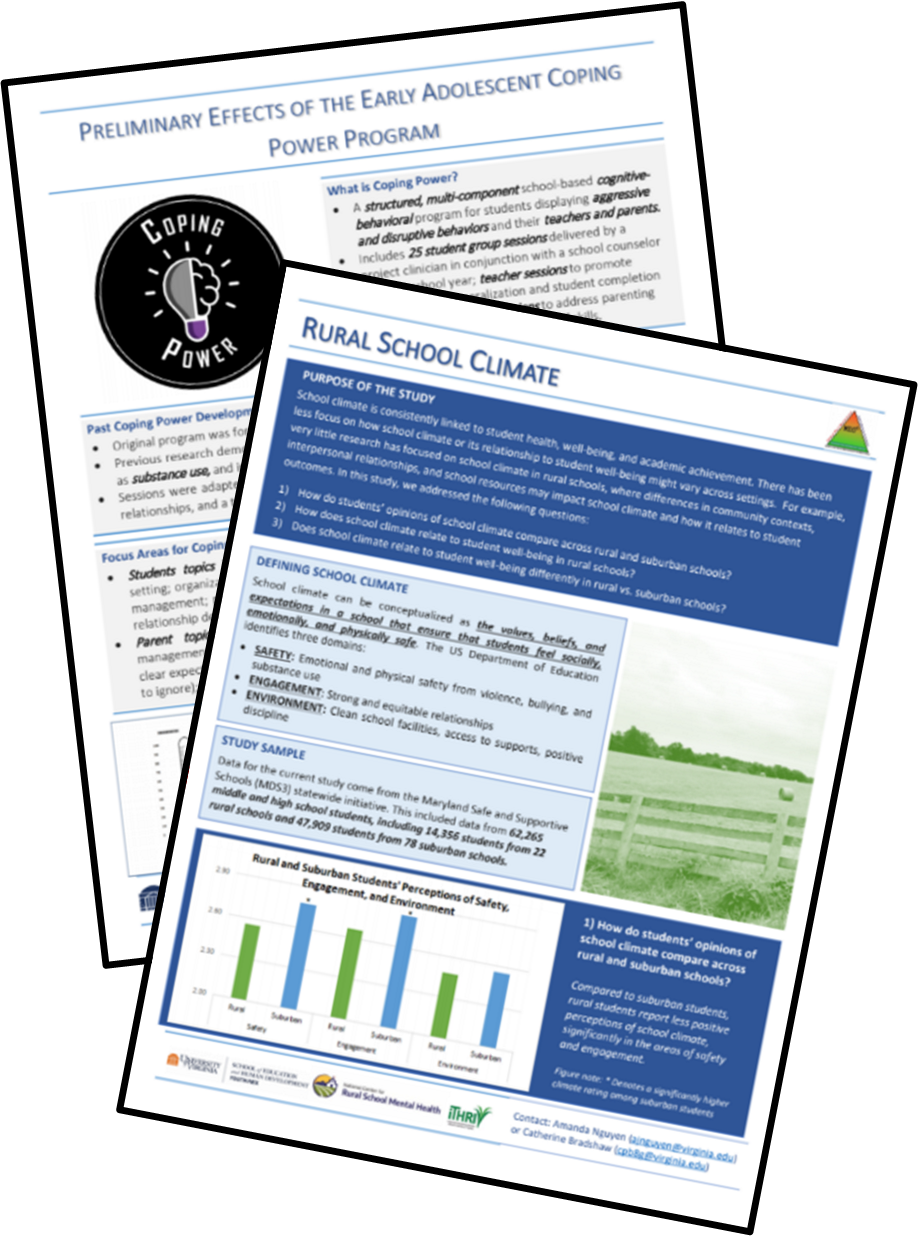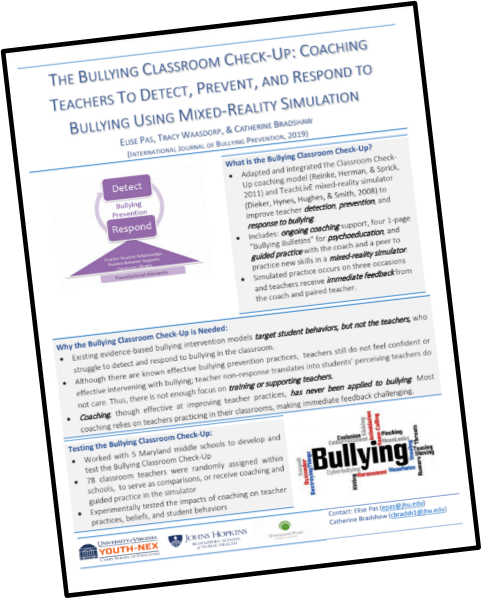Have you ever found yourself at a gathering fumbling to find the words to describe your academic work to family and friends? Do you find it difficult to communicate your scholarship to, and build partnerships with, non-researcher audiences? Are you an early career or seasoned researcher interested in disseminating research to practitioners, policymakers, or community members but struggling to find the best way to do so? Or are you a senior researcher mentoring a trainee through this process?
If your answer to any of these questions is “YES!”, then read on! Writing research briefs is an instrumental part of professional development but, for many researchers, not a formal aspect of training. Drawing on our experience writing research briefs, here are some tips for the challenging, but rewarding, process of translating your research into a brief.
Why Write a Brief?
Research briefs deliver the essence of research findings in a relatable manner to a non-researcher audience. Briefs can
- Broaden your research’s impact by disseminating findings to non-researcher audiences, including communities historically marginalized in research
- Strengthen university-community partnerships and relationships by transparently communicating with partners
- Facilitate future partnerships and employment through increased visibility
 What Exactly IS a Research Brief?
What Exactly IS a Research Brief?
A research brief is a concise, non-technical summary of the key takeaways from a research study. Briefs communicate research insights to the public, thereby translating research and evidence-based practices into real-world settings.
The focus of a brief varies depending on the intended audience., Provide explicit recommendations for practice if you want to reach a practitioner audience. Explore policy and infrastructure needs when writing for a policymaker audience.
Plan to share briefs in diverse settings. Share briefs with research partners (participating districts, schools, teachers), professional networks (at conference presentations), and broader audiences (on personal websites).
Lead researchers on our research team are part of a statewide partnership to support the dissemination of the Positive Behavioral Interventions and Supports framework. This partnership involves researchers and representatives from the Maryland Department of Education, a large behavioral health organization, and all school districts within the state. Researchers regularly write and share briefs with the statewide group, taking into account evolving needs and interests. Check out some of the briefs here.
Briefs Should Be…
- Brief. Condensing a full-length manuscript into a two-page document is challenging. But doing so helps distill the study’s real-world implications and identify steps for future work. Two pages is optimal as it can be easily shared as a one-pager when printed.
- Accessible. Graduate-level coursework in statistics should not be required to understand a brief. The usual audience for briefs will not have the time or energy to absorb methodological details or nuanced theory. Write as if you were presenting to a family member or your favorite high school teacher.
- Visually appealing. A visual representation of an idea will capture attention better than text and help with brevity. Your paper likely already has some type of visual (for example, a logic model) that you can tweak. If not, pull from your visual-making skills you have already honed when creating posters and conference presentations! This process may have you re-thinking how you visually present your research, even in peer-reviewed publications.
- A team effort. Individuals bring diverse skills and strengths to the research team. The study’s lead author may be able to articulate results, but a co-author may have the vision to creatively illustrate these findings in a figure. Make use of each member’s skills by making brief-writing an iterative, team effort.
- Tailored to your audience. If you are developing a brief for a specific audience, ensure that key takeaways and recommendations are relevant and actionable. In some cases, you may have a more technical audience to whom you may present the data more formally. In our own experience, district partners have sometimes asked for more numbers and statistics.
Building Expertise with Brief Writing
Training in doctoral programs, which often encourages lengthy, detail-oriented writing, runs counter to the skills inherent in writing research briefs. While certain programs offer training for writing for non-academic audiences, we advocate for a greater focus on this skill during graduate training. All of the post-doctoral authors of this blog got their first exposure to writing research briefs on this research team. Inspired by our own on-the-job training, we provide the following recommendations for mentors:
- Frame writing the brief as an opportunity. Briefs may feel tangential to the graduate student research mission and challenging to existing skillsets. Thus, the process should be framed as an opportunity to develop an integral set of skills to advance professional development. This will help with motivation as well as execution.
- Provide a template for the brief that can be easily tweaked and tailored, so that graduate students have a model for the finished product, minimizing formatting issues. Publisher and Word have visually appealing templates for flyers that can be easily populated and organizations that publish briefs may provide templates and layouts.
- Know your audience and their interest in the work. The audience should be well-defined (for practitioners, policy makers, or other researchers) and their perspective and interests well-understood. Although knowledge of the audience could come from prior work experience, direct communication with the audience is desirable to gain a firm grasp on their lived experience. If direct interaction is not feasible, mentors should “think aloud” to mentees about which details, words, and images would be most effective and appealing for this audience.
- Early scaffolding should be followed by continued support. After being a co-author on a brief, a graduate student can transition to writing their own brief. They may still need support to complete this task autonomously, with continued feedback from mentors and co-authors.
- Provide graduate students with targeted experiences and formal training opportunities to facilitate proficiency and efficacy in brief-writing. This might include:
- University-based or paid workshops for students and early career faculty focused on writing for non-academic audiences
- Opportunities to interface directly with practitioners
Concluding Thoughts
Writing research briefs is a key translational activity for educational researchers, but for many, requires skills not cultivated in formal training. Our research team has embarked on the journey of developing and sharing research briefs regularly over the past few years. This is an evolving and rewarding process for all of us. We hope this post has provided some helpful information as you continue your journey to be brief!
Summer S. Braun is a postdoctoral research associate at YouthNex at the University of Virginia’s School of Education and Human Development. She will be joining the Psychology Department at the University of Alabama as an Assistant Professor.
Daniel A. Camacho is a Licensed Clinical Psychologist and a postdoctoral research associate at the University of Virginia School of Education and Human Development.
Chelsea A.K. Duran is a postdoctoral research associate at the University of Virginia School of Education and Human Development in Youth-Nex: The UVA Center to Promote Effective Youth Development. She will be starting a position with the University of Minnesota in the summer of 2021.
Lora J. Henderson is a Licensed Clinical Psychologist and postdoctoral research associate at the University of Virginia who will soon be starting as an assistant professor in the Department of Graduate Psychology at James Madison University.
Elise T. Pas is an Associate Scientist (research faculty) at the Johns Hopkins University, Bloomberg School of Public Health.
*Note: Authors are listed alphabetically and contributed equally to the preparation of this post.